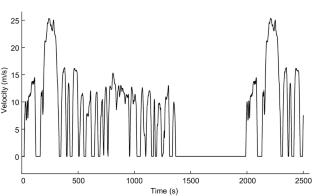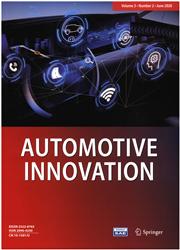Cooperative adaptive cruise control (CACC) is an important technology for improving road utilization and energy efficiency in the automotive industry. In CACC systems, connected vehicles can receive information from adjacent ones through communication networks. However, the networks are vulnerable to cyber-attacks, so the states of vehicles cannot be received promptly and accurately. This paper studies the security resilience control for a CACC system subject to denial of service (DoS) attack. The core of the proposed resilient control strategy is to estimate the delay caused by DoS attack and then compensate for it in the controller. Specifically, a CACC system is modeled by considering the impacts of DoS attack on the transmitted data. Then, a high-gain observer is presented to estimate the vehicle states including the time delay. The convergence of the observer is proved in a theorem based on the Lyapunov stability theory, and the high-gain-velocity observer is modified so that the estimation error of the velocity can converge to zero in a finite time. A resilient controller is designed by proposing a time delay compensation algorithm to mitigate the impacts of DoS attack. The effectiveness of the estimation and control methods is illustrated by a ten-vehicle simulation system operating at the FTP75 driving cycle conditions. And the relative estimation errors are less than 6%.



